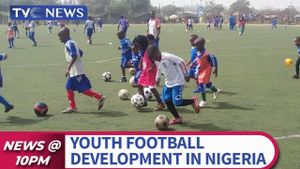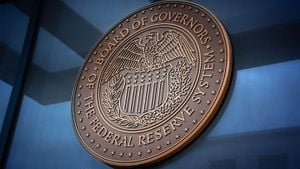The tragic incident at The Hart Space, Southport, on July 29, 2024, where three young girls lost their lives during a Taylor Swift-themed dance class, continues to reverberate through the community as the suspect, Axel Rudakubana, faces the courts. Rudakubana, now 18, has been charged with multiple serious offenses, including three counts of murder and acts related to terrorism. His recent court appearance has drawn significant public attention, highlighting the emotional impact on victims' families and the broader community grappling with the aftermath of this horrific event.
During his latest court appearance at Liverpool Crown Court, Rudakubana was remote from HMP Belmarsh, appearing via video link. Observers noted how he kept his grey sweatshirt pulled over his face, refusing to engage verbally with the proceedings as he was asked to identify himself twice. The court proceedings focused on administrative matters, and Mr. Justice Goose underscored the importance of clarity surrounding the trial issues, scheduling more hearings leading up to Rudakubana's trial, which is slated to commence on January 20, 2025, with estimated proceedings lasting four to six weeks.
The young victims, identified as Bebe King, six, Elsie Dot Stancombe, seven, and Alice da Silva Aguiar, nine, were tragically killed in the stabbing incident, which has shocked the community and nation. Beyond the murders, Rudakubana faces additional charges of attempted murder involving eight other children, who remain unnamed for legal reasons, and of possessing both a knife and biological toxins like ricin. These new allegations have sparked debate and scrutiny over the methods of charging, as experts urge caution against unfounded speculation amid the tragedy.
Chief Constable Serena Kennedy from Merseyside Police has urged the public to refrain from speculation, asserting the suspect’s right to fair trial protections. Her remarks are particularly relevant as the investigation included finding documents like the "Al-Qaeda Training Manual" among Rudakubana's possessions during the subsequent searches of his home. Despite this, prior assertions insist the attack itself has not been classified as terror-related since investigators have been unable to establish any motive correlational to terroristic intent.
The aftermath of the killings sparked unprecedented community reactions. Vigils turned momentarily chaotic, as peaceful gatherings mourning the victims devolved at times, fueled by narratives circulating online. Over 1,000 arrests followed various outbreaks of violence tied to misinformation about the attack and the suspect, with protests aimed at asylum centers indicating deep social unrest.
Rudakubana’s history includes moving to the UK from Cardiff, having lived with his family, who originally hail from Rwanda, when he was just ten years old. Prior media spotlight included his feature in the BBC's Children in Need campaign, where he portrayed the iconic character of the Doctor Whovian series, only serving to amplify the disbelief among local and online communities as they learned of the suspect's background. The juxtaposition of his previous innocence on screen against the present gravity of his alleged crimes adds another layer of complexity to the public’s emotional response.
Descriptions surrounding Rudakubana’s character from peer interactions reveal struggles he may have faced, yet it is difficult to rationalize how these could culminate in such violent acts. The community, mourning the loss of young lives, finds themselves caught between anger and sorrow as they seek answers amid the darkest of circumstances.
The court’s upcoming hearings on December 12 will elucidate the forthcoming trial details and will solidify the charges against Rudakubana as interest remains heightened. Observers expect it to draw considerable media attention, reflecting on the story's national significance as it highlights issues of youth, violence, and community safety. The next chapter for the families affected and for the accused looms as all await the court’s decision.
Each detail coming from the court continues to be dissected not only by families of the victims but also by the larger community determined to see justice serve well and truth brought to light. How society balances calls for justice with the rights of the accused will be pivotal as more hearings approach.
This incident undoubtedly marks the community of Southport and perhaps reverberates through broader dialogues surrounding safety measures for kids, mental health awareness, and how social media narratives can shape public perception during crises. The need for communal healing remains urgent as the families, the court, and the public wrestle with this unparalleled incident.
Rudakubana's upcoming trial presents itself not only as judicial proceedings but as social commentary on outreach, intervention, and societal responsibilities to young individuals. The gravity of this case requires conscious reflection and respectful mourning for the innocent lives taken far too soon. The ripple effects of such loss reach beyond the immediate vicinity, compelling all to confront the collective fears surrounding youth-oriented activities and the protection of vulnerable communities.



